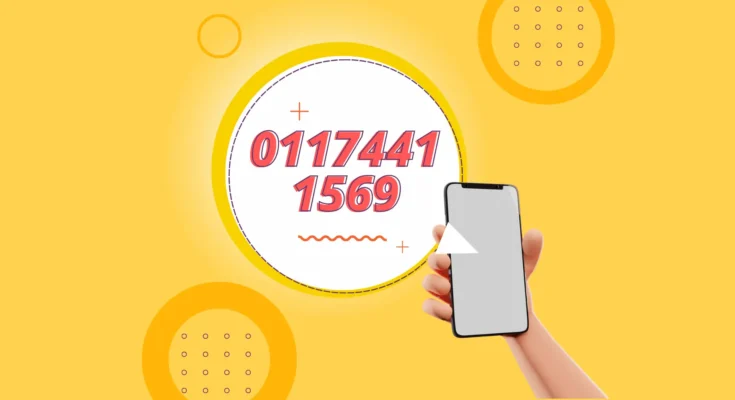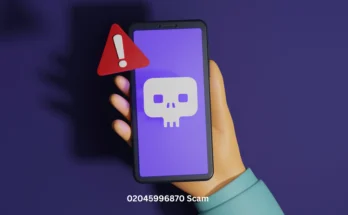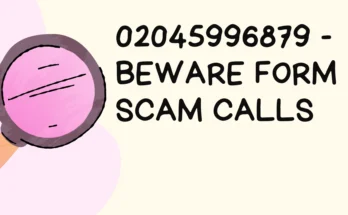In today’s digital age, the number 01174411569 serves as a beacon of hope and a shield against the rising tide of scam calls that prey on the unsuspecting. With fraudsters becoming more sophisticated, it’s crucial to arm yourself with knowledge and resources to protect your peace of mind. This comprehensive guide, crafted by experts in telecommunications security, offers a deep dive into understanding, avoiding, and combatting scam calls effectively.
What Are Scam Calls?
Scam calls, also known as fraudulent or spam calls, are unsolicited telephone calls made with the intent to deceive or defraud the recipient. These calls often involve various schemes aimed at obtaining personal information, financial details, or money from the unsuspecting individual.
Are Telemarketing Calls Scams?
The simple answer is not all. However, discerning the legitimate from the deceptive is key. Scammers often disguise themselves as telemarketers, wielding persuasive tactics to ensnare their targets. Our advice? Approach unsolicited calls with caution, and remember, authentic companies respect your decision to decline offers.
Types of Scam Calls to Avoid
Knowledge is your best defense. Familiarize yourself with common scams: the notorious IRS scam, the grandparent scam, and various phishing attempts that seek personal information. By recognizing these ploys, you significantly reduce your risk of falling victim.
The Mechanisms Behind Scam Calls
Scammers employ advanced technology to mask their true identities, making it challenging to trace them. Caller ID spoofing allows these culprits to appear as local callers or even imitate legitimate organizations. Understanding their tactics empowers you to remain vigilant.

How to Avoid Scam Calls
Taking proactive steps can drastically minimize your exposure to these fraudulent calls. Utilize call-blocking apps, never disclose personal information to unsolicited callers, and always verify the caller’s identity through independent means. Your skepticism is your armor.
Your First Line of Defense
Leverage technology to your advantage. Modern smartphones and telecommunication services offer features to block known scam numbers automatically. Activating these features creates a formidable barrier against unwanted calls.
Take Note of Their Details
In the unfortunate event that you do engage with a potential scam call, gathering as much information as possible becomes paramount. This includes the caller’s phone number, the company they claim to represent, and the specifics of their offer or threat. This information is crucial for the next steps of reporting and prevention.
Championing Consumer Rights
Armed with information, the act of reporting these calls to the appropriate authorities not only aids in your protection but also contributes to a broader shield for the community. Entities such as the Federal Trade Commission in the United States offer easy reporting mechanisms.
A Critical Countermeasure
In the event you engage with a potential scammer, document everything. Caller ID, the time of the call, and the conversation’s content are valuable pieces of information that can aid in reporting these incidents to authorities.
A Duty to Yourself and Others
Reporting scam calls not only aids in your protection but also contributes to a larger effort to combat telecommunications fraud. Contacting your service provider, the Federal Trade Commission (FTC), or local law enforcement agencies can make a difference.
Take Action Today
The fight against scam calls is ongoing, but with 01174411569 as your guide, you’re never alone. Armed with the right knowledge and tools, you can navigate the telecommunication landscape with confidence and security. Remember, vigilance is your strongest ally in the battle against fraud. Let’s work together to make scam calls a thing of the past.
Why Scam Calls Are Still Prevalent in the Internet Age
Despite advancements in technology, the accessibility and anonymity the internet provides have only fueled the fire for scam operations. They adapt, finding new ways to exploit vulnerabilities in our digital world.
Contact Information and Support Services
Should you find yourself in need of assistance or with questions regarding a suspicious call, reaching out to a helpline or support contact offers a pathway to clarity and resolution. Services such as toll-free numbers, helpdesks, and customer care centers are designed to provide you with the guidance and support needed.
Conclusion
The journey through the landscape of 01174411569 is not one of fear, but one of empowerment. By arming ourselves with knowledge, exercising caution, and utilizing available resources, we stand a formidable force against the tide of scam calls. Let this guide serve not just as a resource, but as a beacon, illuminating the path to safer, more secure communications. Together, we can transform uncertainty into confidence, ensuring that each ring of our phones brings opportunities, not threats.
Frequently Asked Questions
How can I differentiate a scam call from a legitimate one?
Listen for red flags such as requests for personal information, urgent demands for payment, and too-good-to-be-true offers.
What should I do if I’ve been scammed?
Immediately contact your bank to secure your finances and report the incident to the appropriate authorities.
Can I completely stop scam calls from reaching me?
While it’s challenging to stop all scam calls, using call-blocking services and remaining cautious can significantly reduce their frequency.
Also Read 2045996818: A Guided into Telecommunication Security



